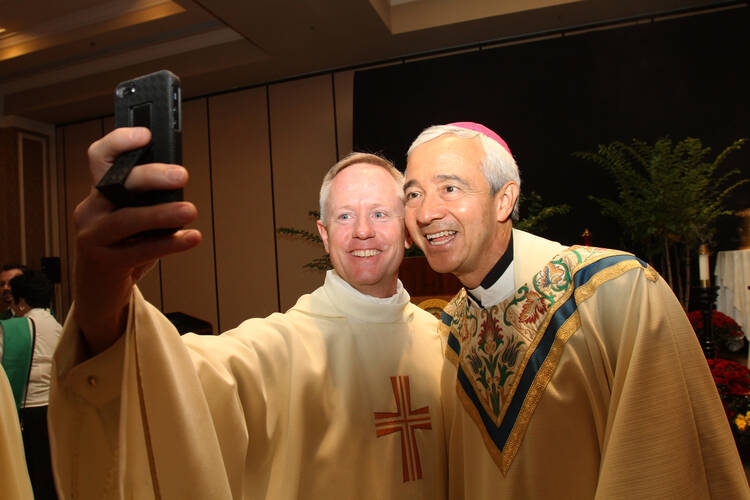Humanity is a long way from grasping all the potential of the Internet, even in the so-called First World where we are all online 24/7, at least so we’re told. In recent years we’ve begun to distinguish between digital natives, younger people who’ve known nothing but the digital universe and to whom it’s all pretty unremarkable, and digital immigrants, usually those of a certain age for whom it’s a useful tool, with which you might manage to get quite proficient while essentially never quite fully assimilating to the new culture. You remain, fundamentally and digitally, a stranger in a strange land, no matter how hard you try.
Yet, be we cool natives or uncertain immigrants, new online possibilities keep on emerging to surprise us. Tweeting, an activity restricted to small garden birds only five years ago, accounts for an ever-increasing percentage of many people’s day. Even the Supreme Pontiff has taken a liking to tweeted selfies. Somebody is always likely to pop up with a new app (and if you don’t know what an app is, you’d best keep your immigration identity documents near at hand for inspection) or a new way of using the web. It happened once again here in London this week.
U.S. tourist Mr. David Willis, from Texas, found himself locked inside a bookshop in central London. The Trafalgar Square branch of Waterstone’s, a national chain, had closed for the night while Mr. Willis was browsing shelves on an upper floor. He told The Guardian newspaper that he’d strolled in around 9 p.m., unaware it was about to close, and passed several employees, none of whom said anything (perhaps they were checking Facebook). When he made to leave, he found the ground (first) floor in darkness and the doors locked. He tried the door, setting off the alarm, which for around 25 minutes rang out into one of London’s busiest squares, alarming precisely no-one. Staying calm, as those unavoidable retro WW2 posters advise us, he called the police, having failed to arouse the security guard. That proving fruitless, he decided to get on social media. And that’s when the real fun began.
Mr. Willis tweeted his predicament and his location. He took a selfie inside the darkened store and posted it with the message: “This is me locked inside a Waterstones bookstore in London.” Over 7,000 Twitterers retweeted it, and a later message. Eventually London’s Metropolitan Police traced a Waterstone’s staffer who had a key. Mr. Willis emerged, a free man, into the Trafalgar Square drizzle after 11 p.m. To celebrate, he did the only thing he could—he tweeted, “I’m free.” In no time at all, he found himself not only free, but an Internet sensation.
It is not known, although our research is ongoing, if he tried to attract attention by any other means. That bookshop has large front windows: did he wave, pull faces, do handstands or backflips between the stacks to catch the eye of passers-by on that busy corner? If he’d been any time in London at all, he’d have known that it’s just not the done thing to acknowledge other people in any public space. He’ll have experienced how, on the Tube, you stare solipsistically straight ahead and determinedly deny the existence of any fellow straphangers, even were they to burst into fits of giggles, suddenly remove all their clothing or even unexpectedly expire right next to you. What chance had he, then, incarcerated between the Mind, Body, Spirit and the Home Cookery sections of Waterstones?
He tweeted, and that Tweet won him his freedom.
This digital immigrant wonders what else could happen. Perhaps Father, on his annual silent Ignatian retreat, might suddenly recall that he hadn’t replaced the sanctuary lamp at Saint Marmaduke’s parish church. No longer need such a distraction in prayer become a drama; with the permission, of course, of the Spiritual Director, a simple tweet on one’s Smartphone would soon whiz round the virtual world; the guttering candle replaced and the faithful assured of the uninterrupted Real Presence. And Father’s retreat would be enhanced. He could pray for the intercession of St. Isidore of Seville (or, as is rumored on the web, of St. John Paul II, who might be named Patron Saint of the Internet). Even on the web, there is always time for a prayer—and always the moment for the prisoner to be set free.








